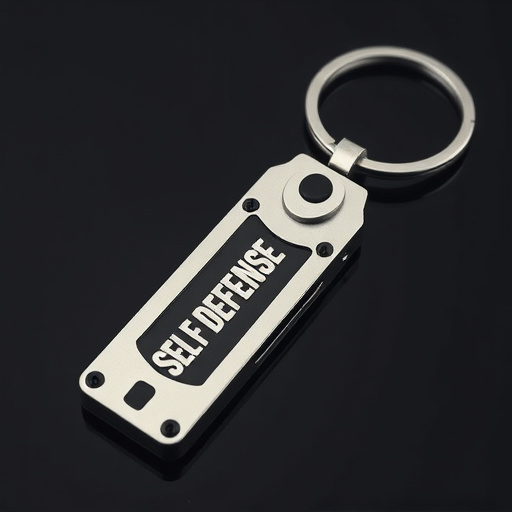Understanding and adhering to your state's Legal Self Defense Keychain Regulations is crucial before acquiring or using such devices. Rules vary widely regarding force application, size, shape, capacity, and material composition. Compliance ensures personal safety, avoids legal penalties, and provides peace of mind in dangerous situations. Always verify local laws for accurate information.
“Uncovering the legal landscape of self-defense keychains is crucial for responsible citizens aiming to protect themselves. This comprehensive guide explores the intricate web of state laws regarding keychain weapons, offering insights into what constitutes legal self-defense and the associated regulations. From understanding your state’s self-defense laws to navigating age restrictions and reporting obligations, this article equips you with knowledge to make informed decisions about personal safety. Discover the key aspects that define legal requirements for carrying a self-defense keychain.”
- Understanding Self Defense Laws in Your State
- Legal Requirements for Carrying a Keychain Weapon
- Defining What Constitutes a Legal Self-Defense Tool
- Age Restrictions and Permit Regulations
- Reporting Obligations & Criminal Consequences
Understanding Self Defense Laws in Your State
Understanding Self-Defense Laws in Your State is crucial before considering carrying a legal self-defense keychain. Each state has its own set of regulations and laws regarding self-defense, including the types of tools allowed and under what circumstances they can be used. For instance, some states allow the use of force only as a last resort when life or property is threatened, while others have more flexible rules. Additionally, legal self-defense keychain requirements vary significantly from state to state. These may include restrictions on the size, shape, or capacity of the keychain, as well as specific materials and design features that are permitted.
Knowing these legal Self Defense Keychain Regulations can help ensure you remain within the bounds of the law while protecting yourself. It’s important to research your state’s specific laws and stay informed about any changes or updates. This proactive approach not only helps in avoiding legal issues but also enhances personal safety, providing peace of mind in potentially challenging situations.
Legal Requirements for Carrying a Keychain Weapon
In many jurisdictions, the legal requirements for carrying a keychain weapon as a means of self-defense vary greatly. It’s crucial to understand local laws and regulations before considering such a precaution. Some states explicitly forbid the open carry of any type of weapon, including keychains designed for self-defense, while others allow it with certain restrictions.
These restrictions often include age limitations, requirements for permits or licenses, and prohibitions on specific locations like schools, government buildings, or places of worship. Additionally, there might be rules regarding the type of weapon allowed—some states only permit non-lethal options, such as pepper spray or stun guns, while others may recognize the legal carrying of traditional self-defense keychains under certain circumstances. Always consult local law enforcement or a legal professional for accurate and up-to-date information on Legal Self Defense Keychain Regulations.
Defining What Constitutes a Legal Self-Defense Tool
When it comes to defining what constitutes a legal self-defense tool, especially in the context of a keychain, understanding specific state regulations is paramount. A legal self-defense keychain should meet certain criteria, such as size, weight, and functionality, that align with local laws. These regulations vary widely from one state to another, so it’s crucial to check your jurisdiction’s specific rules.
For instance, while some states permit small, non-lethal weapons like keychains equipped with pepper spray or a tactical alarm for self-defense, others have stricter restrictions on the type and size of acceptable self-defense tools. Additionally, certain states may require registration or licensing for carrying such devices, while others might ban them entirely. Therefore, being aware of your state’s Legal Self Defense Keychain Regulations is essential to ensure compliance with the law and to effectively utilize your keychain for personal safety.
Age Restrictions and Permit Regulations
In many jurisdictions, the legal status of self-defense keychains is subject to specific age restrictions and permit regulations. Typically, individuals under a certain age, often 18 or 21, are prohibited from carrying such devices due to concerns regarding misuse and potential risks to public safety. To legally own a self-defense keychain, one must usually obtain a permit or license, which involves meeting certain criteria and possibly undergoing training in its safe use.
These regulations vary significantly across states, with some requiring strict background checks, proof of completion of self-defense courses, or even a demonstration of proficiency in using the device during an application process. Understanding and adhering to these legal requirements are essential for ensuring compliance with local laws, preventing criminal charges, and promoting responsible ownership of legal self-defense keychains.
Reporting Obligations & Criminal Consequences
In many jurisdictions, the possession and use of a legal self-defense keychain are governed by strict regulations. One significant aspect is the reporting obligation for individuals carrying such devices. This typically includes registering the keychain with local law enforcement or providing documentation that proves the legal ownership and purpose. Failure to comply with these reporting requirements can lead to severe criminal consequences, including fines and imprisonment.
Moreover, if an individual uses a self-defense keychain in a manner that exceeds what is considered reasonable force under the circumstances, they may face additional charges. The legal definitions of “self-defense” vary by state, and what might be justified in one situation could be deemed excessive or even criminal in another. Understanding these legal Self Defense Keychain Regulations is crucial to ensuring compliance and mitigating potential risks associated with their use.
Understanding the legal requirements for carrying a self-defense keychain involves navigating complex state laws. By defining what constitutes a legal tool, considering age restrictions, and being aware of reporting obligations, you can ensure compliance with your state’s regulations. Remember, the specific rules vary widely, so it’s crucial to research and understand the Legal Self-Defense Keychain Regulations in your area to protect yourself legally and responsibly.
